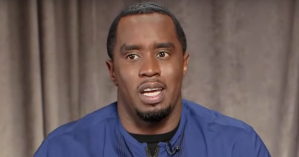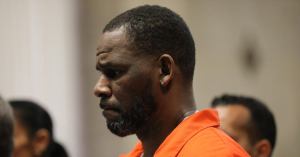R. Kelly has officially begun his 30-year sentence. The “I Believe I Can Fly” singer was sentenced after being found guilty of racketeering in his Brooklyn criminal case. He faces similar charges in the states of Georgia, Minnesota, Florida, and Illinois – the latter of which trial begins in August. Now, Kelly claims he’s being punished for behind high profile by being placed on suicide watch in a Brooklyn detention center, despite him saying he has no intention of harming himself. Jennifer Bonjean, his attorney, told CNN that Kelly had been fearful of being put on suicide watch. “The irony of putting someone on suicide watch when they’re not suicidal is it actually causes more harm,” Bonjean said in a statement. “It’s punishment for being high-profile. And it’s horrifying frankly. To put someone under suicide watch under those conditions is cruel and unusual when they don’t need it.”
Kelly is now suing. TMZ reports that he filed suit against MDC Brooklyn, accusing them of “cruel and unusual punishment” and listing the harsh conditions of suicide watch due to his celebrity. He is arguing his 8th Amendment rights are being violated because “he is not suicidal and expressly told MDC officials that he was not suicidal and had no thoughts of harming himself or others.” In an interesting note in his suite, he lists Jeffrey Epstein’s alleged handler Ghislaine Maxwell — who was also placed on suicide watch though reports also claimed she was not going to harm herself.
Videos by PopCulture.com
He says his conditions are inhumane. Kelly describes being in a single cell without bed rails, no showers, no shaving, no toilet paper, being forced to eat meals with his hands, and being shut off from loved ones with no contact. He says it’s contradictory because inmates on suicide watch don’t receive psychiatric care.
He is suing for damages from emotional distress. The Bureau of Prisons told the media outlet: “The BOP is committed to ensuring the safety and security of all inmates in our population, our staff, and the public. Humane treatment of the men and women in our custody is a top priority.”
Related Posts
-

ATLANTA, GEORGIA – FEBRUARY 02: Rapper Bow Wow attends the game between the Phoenix Suns and Atlanta Hawks at State Farm Arena on February 02, 2024 in Atlanta, Georgia. NOTE TO USER: User expressly acknowledges and agrees that, by downloading and or using this photograph, User is consenting to the terms and conditions of the Getty Images License Agreement.




